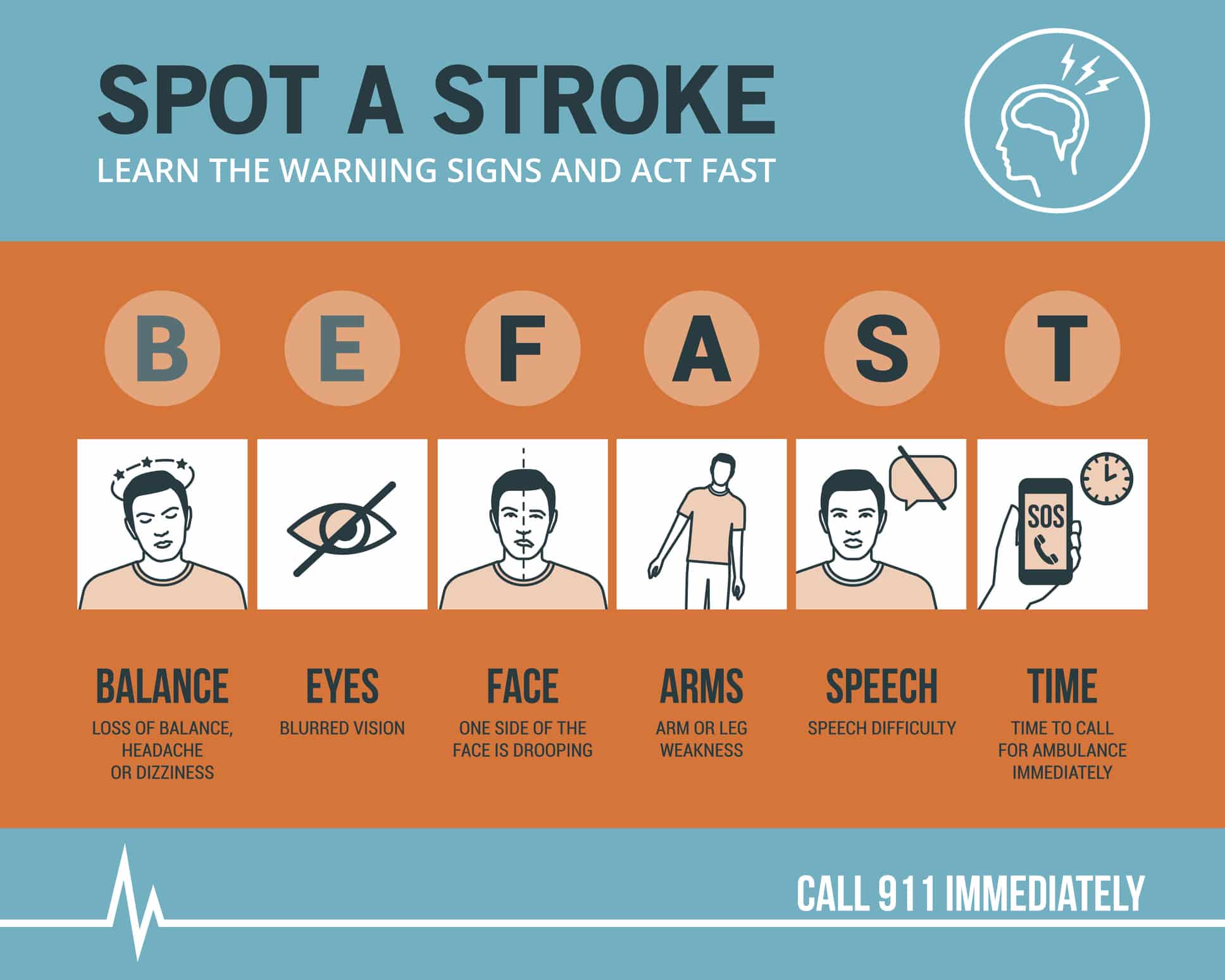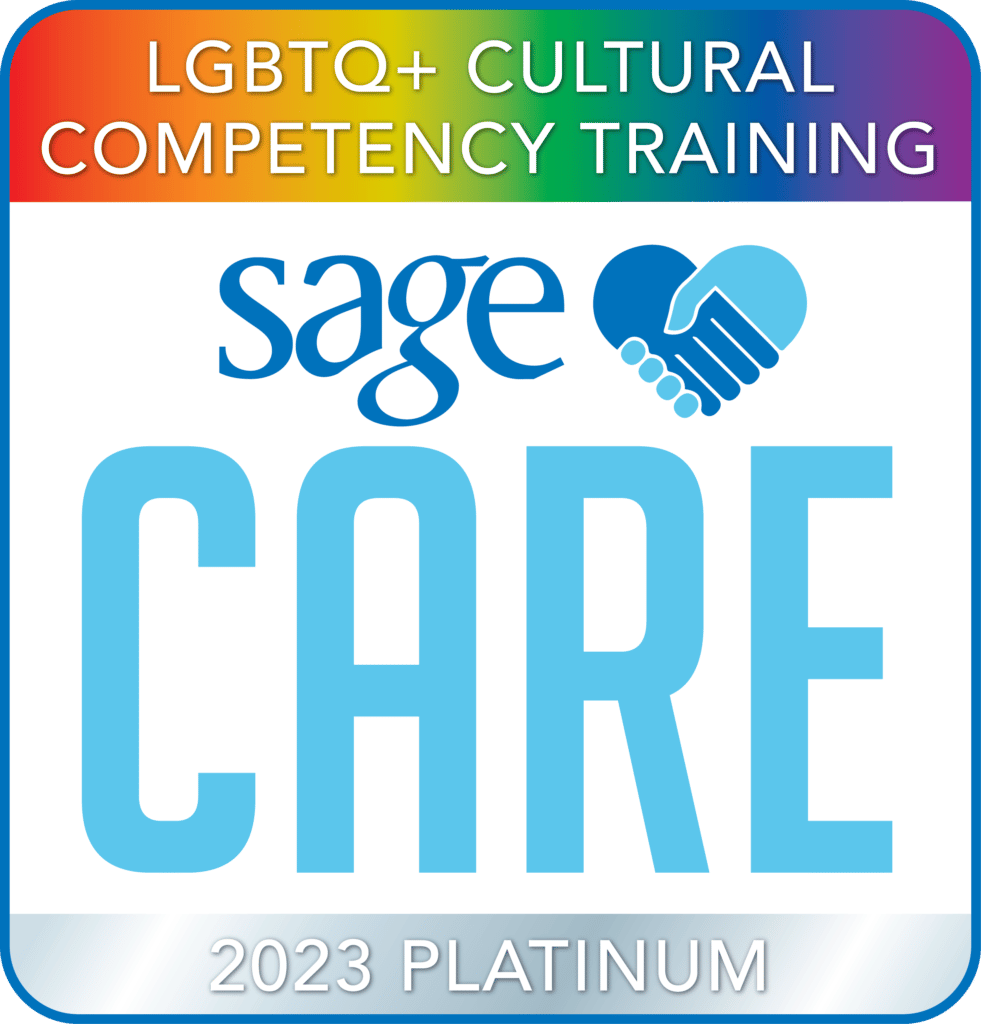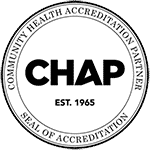Be Aware and Save Lives: Stroke Warning Signs and Symptoms

When it comes to strokes, every second counts towards preventing permanent damage and saving lives. Here’s what you need to know from our senior home health care services team about this medical condition in order to act quickly.
F-A-S-T – The easy way to recognize stroke symptoms
The four letters F-A-S-T, spells out the symptoms of a stroke and are key to saving lives. Here’s what they mean:
F = FACE DROOPING. Watch for one side of the face starting to droop or feel numb. Ask the person to smile to check for unevenness.
A = ARM WEAKNESS. One arm feeling weaker or numb. To test, ask the person to raise their arms up in front of them and see if their one arm drifts down or has difficulty responding.
S = SLURRED SPEECH. Difficulty speaking and articulating words. Test the person by asking them to repeat a short sentence like, “The grass is green.”
T = TIME. If someone shows one or more of the above symptoms, it’s time to call 9-1-1. This is vital even if you are unsure or if the symptoms seem to be going away, as time is absolutely vital for effective medical treatment.
Additional symptoms may include vision trouble, sudden dizziness or trouble walking, severe headache or numbness on one side of the body.
What is a stroke?
A stroke occurs when a blood vessel bursts or is blocked by a clot. This prevents vital organs, like the brain, from getting needed oxygen and nutrients and very quickly results in damage to the organ. This is a very serious event, as the affected part of the brain may never fully recover from the damage and, if the stroke is severe enough or not treated quickly enough, the patient may die.
In fact, strokes are the fifth most common cause of death in the USA, killing around 140,000 Americans each year. Because many of these deaths and stroke-related injuries can be prevented if patients are treated as quickly as possible, knowing the FAST checklist is so essential.
Stroke risk factors
While a stroke can happen to anyone, these risk factors make a stroke more likely:
- African-Americans are twice as likely as whites to have a first stroke, and have the highest mortality rate.
- Younger age groups are increasingly at risk of stroke, but the highest age group at risk are people over 65.
- Women are more likely to have a stroke than men.
- Health conditions and lifestyle. High blood pressure, high cholesterol, smoking, obesity, diabetes, low physical activity, and heart disease all increase stroke risks.
Expert, compassionate at home care for the elderly in NJ
At United Methodist Communities, one of New Jersey’s leading home health aide services organization, we strive to offer the very best quality senior homecare options, from assisted living to in-homecare through our HomeWorks program. This program assists the elderly in the comfort of their own homes and provides them, their families and caregivers, personalized, compassionate care that prioritizes health, happiness and independence. In addition to daily home care, we also offer pastoral care for spiritual and emotional support in the home.
For more information on our senior home health care services or to find a qualified home health aide in New Jersey, please contact us today or visit our website at https://umcommunities.org/homeworks/.





